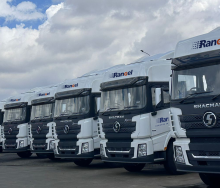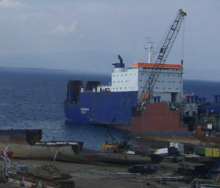Cash transactions for motor vehicles – one way to launder illicit money – will have to be scrutinised more closely by motor vehicle dealers as part of the government’s efforts to crack down on such activities.
Already other South African business sectors are required to make adjustments to financial reporting to try to identify suspicious cash transactions.
Now it is the turn of motor dealerships, which were given time to introduce vetting of potential vehicle cash purchasers. Late last year South Africa changed the Financial Intelligence Centre Act (Fica) to require greater scrutiny by motor dealerships. It gave the sector 18 months to comply.
However, requirements were largely ignored because they seemed complex and without apparent business benefits, according to a recent bbrief newsletter.
The shift to making institutions and business sectors accountable will not change, particularly as South Africa has since been greylisted for insufficiently tackling illicit financial flows. It is more likely that enforcement will increase to reverse the greylisting.
“South Africa needed to make essential adjustments to financial reporting, especially around money laundering and cash transactions. We’ve read headlines of busted criminals who flaunted their ill-gotten wealth online, usually properties, expensive luxury items and cars. They tend to buy those items with illicitly gained cash,” the article states.
Vehicle dealers used to operate requiring a limited amount of reporting. Certain tasks were not their problem, such as vetting a person’s identity.
Before the Fica change, dealerships were already responsible for reporting suspicious transactions and individuals. But they could pass the responsibility of identifying a person’s fitness to transact to financial service providers, which are accountable institutions.
Under a credit-based transaction system, that isn’t a problem. It was a win-win: the dealership was paid for goods, and the financial institution would check for creditworthiness and offer an interest-bearing loan. But when someone buys a vehicle with cash, that symbiosis doesn’t come into play. Hence the change to Fica. It means several extra responsibilities by the dealer that are required by the authorities to try to identify illicit activity.
Non-compliance will lead to financial and legal penalties for dealerships when the changes required are fully in place by mid-2024.













